From resilience to authenticity: Lockdown learnings from CEOs—Part 2
Industry leaders from across sectors talk about what their learnings—professional and personal—have been through the Covid-19 pandemic


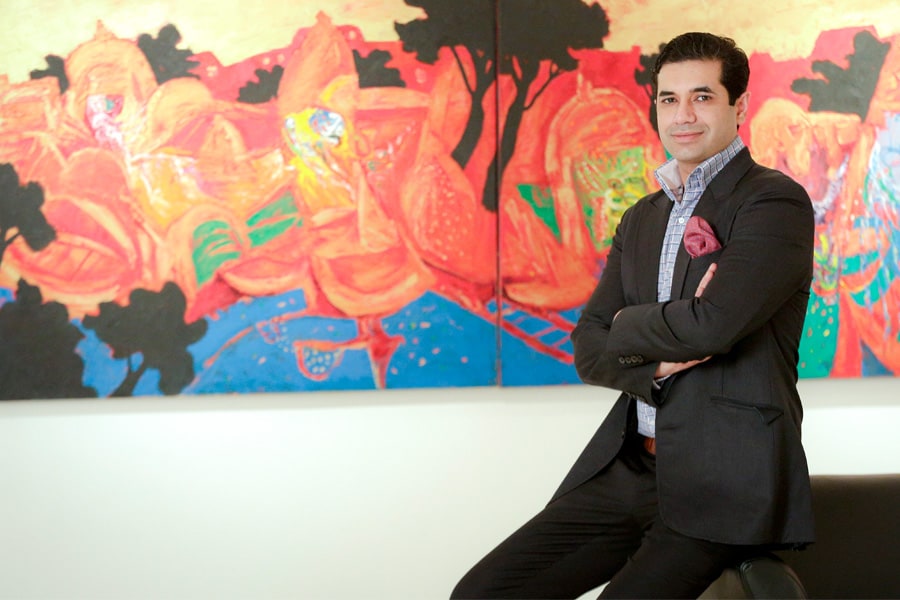 Tushar Sethi, CEO, AstaGuru
Tushar Sethi, CEO, AstaGuru
‘The Lockdown Validated Our Focus On Digital’
Tushar Sethi, CEO, AstaGuru
One of my biggest learnings from the lockdowns is the indispensable spirit of teamwork for any organisation. The essence of working together as a team during a crisis inspires and motivates all to overcome new challenges. Another crucial factor is inculcating the ability to adapt to change. Change could be in multiple forms, ranging from change in one’s place of work to change in the technology that enables one to continue working. The last but definitely not the least important takeaway for me is the importance of technology. AstaGuru, as an auction house, has always been focussed on technology—we’ve only conducted our auctions online. The seamless possibilities that technology offered us during the lockdown reiterates our core philosophy and validates our approach.
‘The Shift To Health and Hygiene Is A Permanent Reset’
 Saugata Gupta, managing director & CEO, Marico Ltd
Saugata Gupta, managing director & CEO, Marico Ltd
Through this challenging year, our philosophy of ‘People First, Business Next, and Profits Last’ was a true testament to what Marico stands for. Our industry has witnessed an intrinsic shift in consumption preferences—most notably, the heightened demand for healthy foods, hygiene, and immunity-boosting products, which I believe will be a permanent reset. There has been a similar transformation in channels and a significant acceleration in digital adaption across the entire chain.
The pandemic has provided us with an opportunity to think long-term, to create a more resilient and robust operating model to address the evolving needs of our consumers.
I am also conscious of the kind of responsibility that a company like ours has during these times. So, for all of us, this has been a year of immense learning and personal growth as we successfully coped with the numerous challenges. I do believe that as we assimilate our experiences while shaping the new normal, we will move into 2021 more confident than ever before.
‘Businesses Must Focus On People—Customers and Employees’
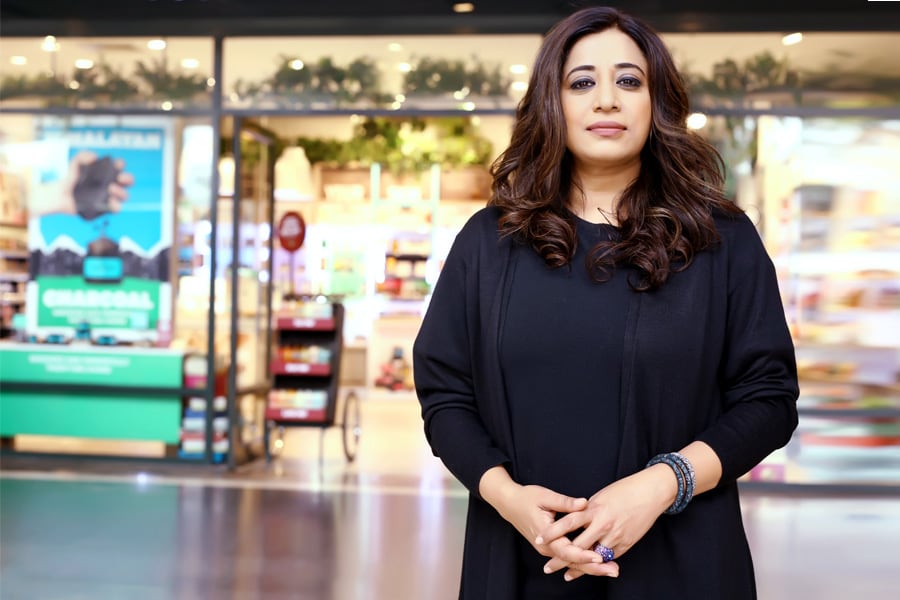 Shriti Malhotra, CEO, The Body Shop India
Shriti Malhotra, CEO, The Body Shop India
2020 has been a year of challenges and difficulty, and one of survival and growth. Most of us have spent much of this year in varying degrees of isolation and this has really underlined key revelations—our need for human connection, an awareness of our own privileges, and the importance of helping the less privileged.
For our business, it has been a year of learning, agility, perseverance, creative problem-solving and, most importantly, keeping people at the centre of our focus—responding responsibly to our consumers’ changing behaviour, and taking care of the health and safety of our frontline teams. This has included continuous investments in virtual shopping experiences, setting up hyper-local services, and door-deliveries.
At The Body Shop, activism has always been in our DNA, and we put this at the heart of our Diwali campaign with Project NARI (Nutrition. Ability. Retraining. Inclusion) in association with Plastics for Change India Foundation. Project NARI benefits female waste-pickers who are at the frontline of the Covid-19 crisis, and continue to work at great risk. We aim to raise up to `5 million over the next six months towards this initiative.
‘Future Business Models Can No Longer Be Rigid’
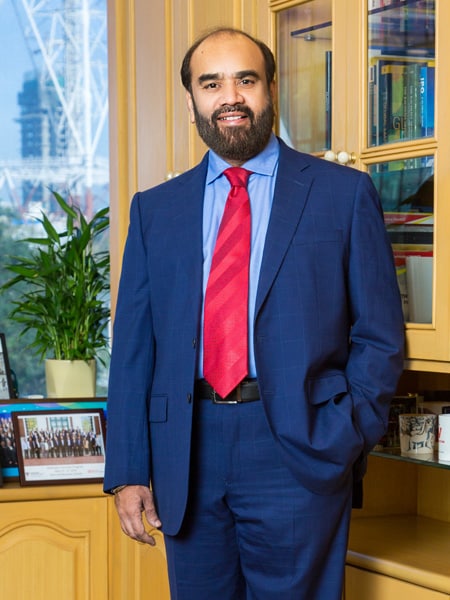 Ramesh Iyer, vice chairman & managing director, Mahindra & Mahindra Financial Services Ltd.
Ramesh Iyer, vice chairman & managing director, Mahindra & Mahindra Financial Services Ltd.
One of the first and foremost learnings was the realisation that business models of the future will have to be flexible. In our business, which is pre-dominantly rural focussed, customers were accustomed to physical modes of paying instalments, with company executives going to them or them coming to the branch, paying largely in cash. During the pandemic, we quickly provided our customers with digital repayments solutions. Future business models can no longer be rigid disruptions will come and compel you to adapt and make changes overnight.
Businesses will have to continuously look for and provide solutions to customers, even though some of these might hurt business interests in the short term. How do you make these decisions? You can’t always find a win-win solution. The second learning was that sometimes decisions, which could be lose-win solutions in the short term, need to be made for the benefit of the customer in order win their confidence for a win-win in the long term.
From an employee perspective, these are times when leaderships will have to be emotionally connected at the ground, especially with employees located at a distance, where there is always a fear of losing jobs, reduced compensation, of not being successful. We engaged more frequently with employees through webcasts, tele-conferences etc, and created a senior team that maintained a direct connect with them.
‘It Gave Me A Chance To Confront My Fears’
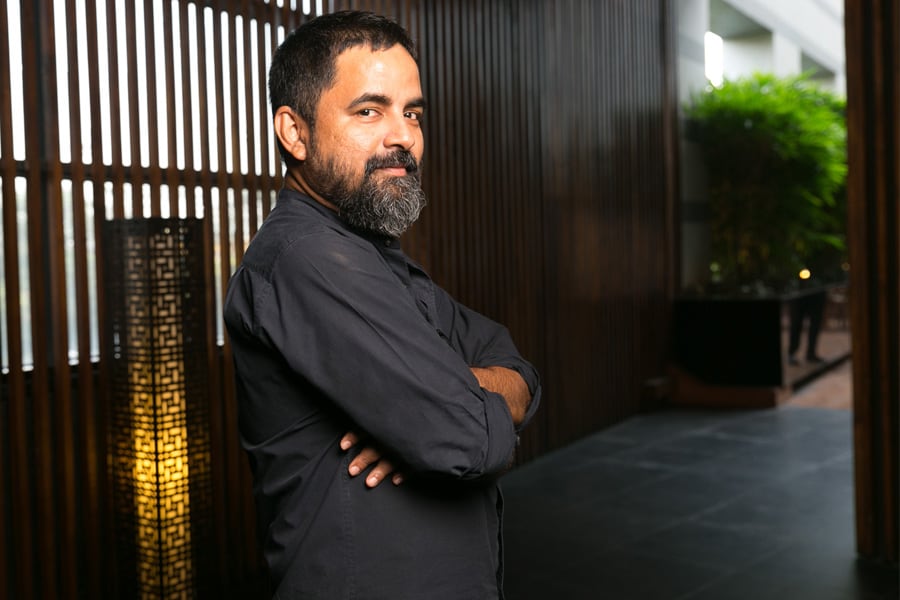 Sabyasachi Mukherjee, fashion designer. Image: Madhu Kapparath
Sabyasachi Mukherjee, fashion designer. Image: Madhu Kapparath
A common fallout of success is the fear of failure. A lot of entrepreneurs might not admit it, but this fear plagues even the strongest of us. It stops us from acting on the two things that made us successful in the first place—our passion, and our instinct. I fall victim to this fear often.
I really love to eat, but I never learnt how to cook because I convinced myself I would be terrible at it. Living in isolation, however, left me with no choice but to cook my own meals. I could finally do something without the self-imposed pressure of perfection. It liberated me to enjoy the process of cooking. Much to my surprise, I found out that I can cook reasonably well. Even my parents (my biggest critics) look forward to my meals every day. I felt cheated that, for most of my life, I deprived myself of a simple joy for fear of failure.
When we allow our fears to supplant our passion and instinct, we hesitate when faced with challenges we make space for mediocrity rather than vision. We don’t have the courage to create a proof-of-concept to be market leaders, and instead succumb to data to inform our business decisions. It’s been a tough year, but if there was a silver lining it’s that it gave us a chance to confront our fears and break out of the patterns that limit us.
‘Technology Can’t Replace Human Connections’
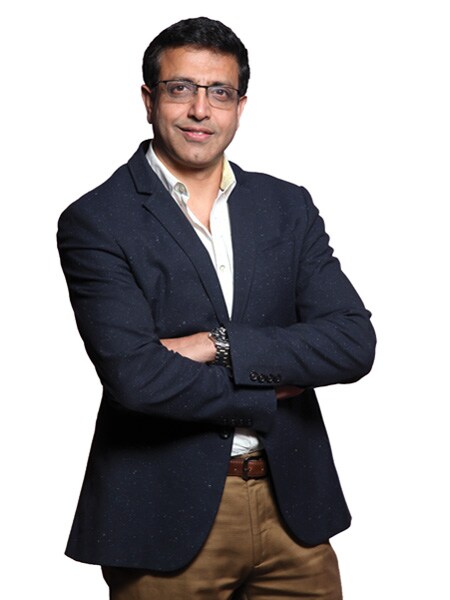 Sunil Kataria, CEO, India & SAARC, GCPL
Sunil Kataria, CEO, India & SAARC, GCPL
2020 has taught us that many impossibles are actually quite possible. Work-from-home (WFH) became a reality, and all of us learnt that assignments, meetings and events that we thought required physical presence, can take place virtually. However, technology cannot replace the human connections created at the workplace. In future, we may not WFH permanently, but we will adapt to a more hybrid working model that allows team members to build personal connections at the workplace, and offer more flexibility to work remotely.
The year has also tested the human spirit. We have seen how our team members have navigated very uncertain times with grit, agility and dedication. As a case in point, we brought down our new product development cycles from 18-24 months to less than 90 days. Navigating a volatile, evolving business environment has made us realise that there is nothing a team can’t achieve if it is united and nurtured with empathy and support. Our focus has also shifted towards taking care of our inner self. Mental health has gained more prominence than ever before, which is a step in the right direction for people to become better colleagues, friends and companions.
‘Crisis Is the Time To Make the Most Of The Silver Lining’
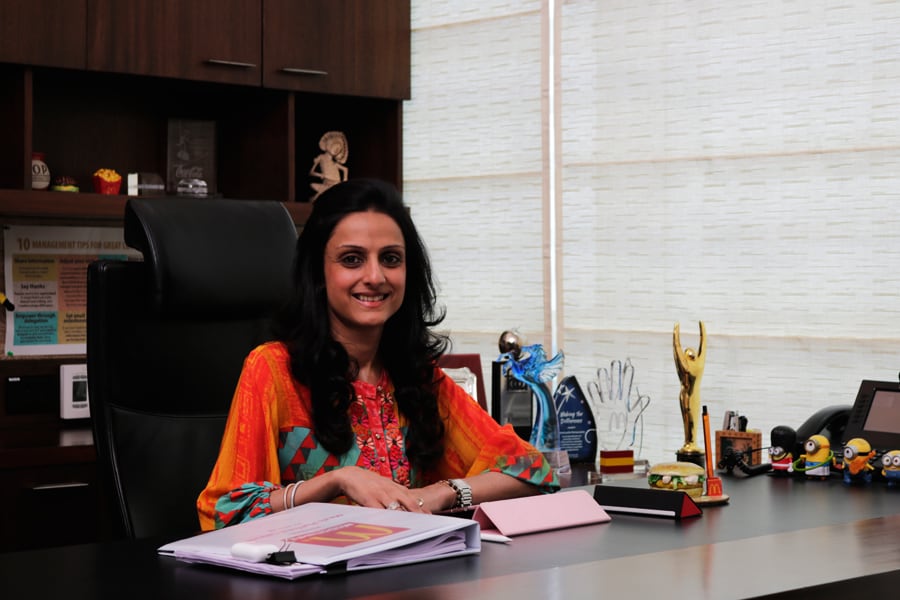 Smita Jatia, director, Westlife Development Ltd
Smita Jatia, director, Westlife Development Ltd
Right from the day Covid-19 reached the shores of India, everything went into a tizzy. The paranoia, the fear and the eventual lockdown turned most industries upside down, but it was especially harsh on a few. Unfortunately, the restaurant industry was one of them.
Once I was able to come to terms with the shock that the business had suffered, I decided to not let this year be the year of crisis, but one of opportunity. It was an opportunity to spend more time with my family and to re-engineer the business and make it even more robust and shock-resistant.
In 2020, we created new benchmarks for our business. We deployed our omni-channel strategy and ensured we served safe food to customers, and were able to keep our 10,000-people family with us. The biggest highlight was that I got to spend lots of quality time with my newborn granddaughter.
My biggest lockdown learning has been that a crisis is a terrible thing to waste. If you have the conviction, you should be able to find that one silver lining and make the most of that.
First Published: Dec 26, 2020, 08:20
Subscribe Now